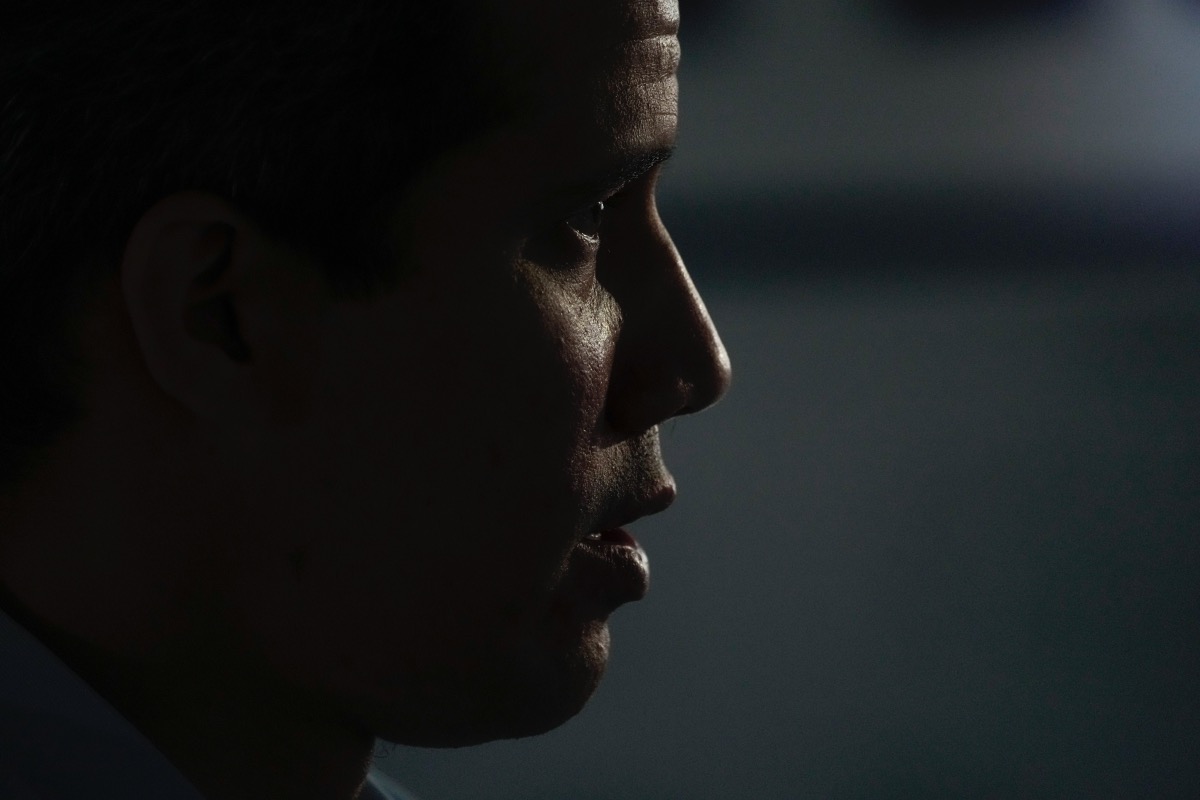

Opposition leader Juan Guaidó speaks during an interview with the Associated Press in Caracas, Venezuela, Thursday, February 10, 2022. Guaidó on Monday, April 24, 2023, said he crossed the border into Colombia “on foot” to seek a meeting with international delegations gathering there for a conference focused on his country’s political crisis. (AP Photo/Ariana Cubillos, File)
By REGINA GARCIA CANO, Associated Press
CARACAS, Venezuela (AP) — Venezuelan opposition leader Juan Guaidó said he was expelled from Colombia hours after he crossed the border from Venezuela to try to meet with some participants at an international conference Tuesday to discuss his country’s political crisis.
In a video posted on Twitter, Guaidó said he entered Colombia trying to escape Venezuelan government persecution, but that now he also felt he was being persecuted by President Nicolás Maduro in Colombia.
Colombia’s Foreign Ministry said late Monday in a press release that Guaidó was “irregularly” in the country so immigration authorities escorted him to the international airport to take a plane bound to the U.S.
“The persecution of the dictatorship unfortunately spread to Colombia today,” Guaidó said on the video from inside an airplane. He added that he was on a commercial flight to the U.S and that he would say more on Wednesday.
After the re-election of Maduro in 2018 was deemed a sham by dozens of countries, Guaidó declared himself Venezuela’s interim president in 2019. However, his popularity has waned since then and opposition lawmakers voted in January to strip him of that role and instead appoint a committee to run what they call their “interim government.”
Tuesday’s international conference organized by Colombian President Gustavo Petro is meant to jumpstart official dialogue between the government of Maduro and his adversaries. The formal negotiations between both sides guided by Norwegian diplomats and hosted by Mexico stalled at the end of last year.
“I will be requesting meetings with members of the international delegations,” Guaidó had said in a statement. He said he hoped the meeting would “ensure that the Maduro regime returns to the negotiating table in Mexico and agrees to a credible timetable for free and fair elections to solve the current situation.”
Any of Guaidó’s meetings with delegates apparently would happen on the sidelines of Tuesday’s conference. Colombia’s Foreign Minister Álvaro Leyva issued a statement saying that Guaidó was not invited to the conference and was not expected to attend.
Until Monday, Guaidó had not left his country since 2020.
Guaidó recently denounced an increase in threats against him in Venezuela. In the statement, the opposition figure said he took what he called the risks of traveling there “to secure international support for the democratic cause in Venezuela.”
Guaidó has continuously criticized Petro’s policies toward Maduro, including the planned conference, which will be attended by representatives of the U.S. and at least 15 Latin American and European countries. Petro and Maduro have said they will seek to end economic sanctions against Venezuela during the gathering in Colombia’s capital, Bogotá.
When Guaidó declared himself Venezuela’s interim president in 2019, he ran a parallel government and was backed by the U.S., which handed him control of Venezuelan assets frozen abroad through sanctions.
He initially had broad support but disappointed many who thought he could topple Maduro and his popularity plunged within and outside of Venezuela. He is now among the opposition politicians campaigning ahead of a presidential primary scheduled for October.
The gathering in Bogotá gained momentum after U.S. President Joe Biden and Petro met Thursday at the White House and discussed Venezuela’s challenges among other topics. The presidents issued a joint statement expressing a “shared commitment to support and contribute to the solution of the situation in Venezuela.”
However, Petro told reporters that his proposal to the White House included developing an electoral schedule, with guarantees, and the gradual lifting of sanctions imposed by the U.S. with the objective that “the people decide freely without sanctions, without pressure, their own destiny.”


